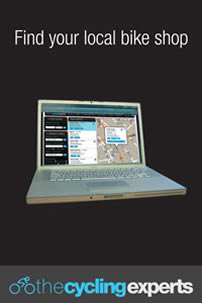Save our cyclists, argues The Times
02/02/2012 Advocacy
The Times newspaper today threw its substantial weight behind an 8-point manifesto, urging safer conditions for UK cyclists.
The feedback was immediate: cyclists and cycle organisations – and road safety organisations, and motoring organisations such as IAM, AA and RAC – supported the newspaper’s stance. The Labour Party is to push for a ‘Cycling Summit’ to take up the issues raised by The Times.
Sustrans pledged to support the ‘cycle safe’ campaign.
British Cycling, the European Cyclists’ Federation, London Cycling Campaign, CTC, and the Cycling Embassy of Great Britain also voiced support.
The Times pointed out that since 2001, 576 British soldiers have been killed in Afghanistan and Iraq; in the same period, 1,275 cyclists died on British streets.
Sustrans’ policy advisor Eleanor Beasley said:
“Given the recent spate of high profile collisions with cyclists and a dramatic increase in those killed and seriously injured, you’d be forgiven for thinking that cycling in Britain can be unsafe. Here at Sustrans, we find that fear of traffic is the main thing that puts people off cycling – especially women and children.
“We are facing a stark choice: abandon our bikes and keep our kids indoors, or fight for safe streets for everyone. The Times’ campaign aims to make sure that cyclist safety is taken seriously at the highest level – even though it’s a while since we’ve seen David Cameron on his bike.
“Cycling shouldn’t have to be a heroic act or a political statement. Just getting on your bike can create and inspire big changes. The more people that get on their bike, the more we’ll get seen, recognised and prioritised.
“But the recent increase in tragic accidents is a sure sign we can’t do it alone – we desperately need our politicians to listen, and to act. Sustrans has pioneered walking and cycling schemes around the country – and we know what works. We’ve seen neighbourhoods turned around by better routes, slower speeds and more people opting for two wheels instead of four.
“The single biggest thing our politicians could do to protect – and set free – cyclists around the country would be dropping the speed limit on the streets where we live, work, shop and play. Councils like Islington, Portsmouth, Oxford and Liverpool have already started to introduce a 20mph speed limit on residential streets.
“Another major way to help more people cycle safely is changing the places we to travel through. Our work in London has shown that by developing a network of greenways – some off road and some on quieter streets – we’ve helped to get more people of all abilities cycling who wouldn’t have dreamed of braving London’s busy main roads.
“Cycling can help tackle some of society’s biggest problems, from rising levels of obesity to climate change. But many of the schemes that are helping people to get – and stay – on their bikes are facing an uncertain future because of funding cuts. We urgently need politicians to support a long-term improvement in conditions for people choosing to go by bike. This should include a commitment to dedicated funding streams for smarter and healthier travel.
British Cycling today released its own findings on cycle safety.
Ian Drake, Chief Executive of British Cycling, said: “As more people take to their bikes, we take seriously our responsibility to ensure they are able to do so in a safe environment. The reality is that the number of cycling deaths and injuries on the roads is decreasing and evidence suggests that the more people who cycle, the safer it becomes. However, for us, even one death is one too many and by listening to our members we can better understand what needs to be done to help create the necessary mutual respect required between motorists and cyclists to ensure both can use the roads in a safe manner.
“It’s essential that we get away from this sense of ‘them and us’ between motorists and cyclists. Most people who ride a bike also drive a car which suggests there should already be some mutual understanding. Now more needs to be done to build on this and create culture in which all road users can better respect each other. And it’s important to stress that cyclists have as much of a role to play in this as motorists, by ensuring they adhere to the rules of the road with regards to things like stopping at red traffic lights and signalling correctly.”





